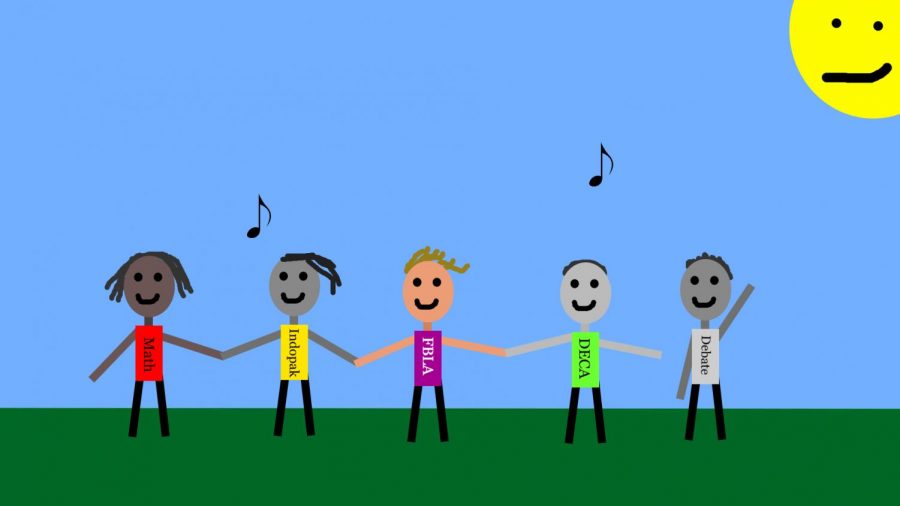More Clubs More Fun
Irvington’s current club system ensures that students at Irvington can try out a variety of different experiences.
A quick peek into Norse Hall after school on a Tuesday reveals the faces of over 60 smiling freshmen learning Parliamentary Debate for the first time. If you check the same location a day after you see another 60 freshmen eagerly learning about business and finance. These freshmen are only able to learn these skills thanks to the large number of clubs that are present on campus. At Irvington we have over 50 clubs, with each club being held to a standard that makes sure they have a positive impact on the campus. All clubs are an important and beneficial part of the Irvington ecosystem, since they provide students with real life experience in fields they are interested in and help develop connections between like-minded students. Such a feat that would not be possible without the variety of clubs available for students to try out.
Having more clubs provides students more paths to explore their passions in a low stress and inexpensive way. These passions can be both potential careers or just hobbies that they wanted to explore further. One example of a career club is Synapsis, which focuses on providing students opportunities in the field of neurology and biology. It offers activities such as dissections and service projects for relatively low costs, especially when compared to expensive summer camps where students would have to pay as much as $3500 for a similar experience.
Larger clubs like Synapsis are great for introducing kids to certain topics, but smaller clubs can develop specific interests further. One example of a smaller club is the FCSN Neurodiversity Club, a club focused on helping and working with neurodiverse children. While a large club like Synapsis may have helped students to become interested in a broad subject such as neurology, clubs like FCSN are a great way for students to engage in their specific niche. Many clubs are also focused on developing passions, such as the Rock Climbing Club at Irvington. Such clubs can provide curious students with opportunities to learn from more experienced students about their specific hobby. The main reason that some of these hobby clubs exist is thanks to Irvington’s lax policy on opening clubs.
Additionally, in smaller clubs that are more focused on specific issues or passions, students are able to make new friends with their clubmates. The more clubs there are on campus, the more likely that there is a unique club for someone’s personality. For example, the various service clubs that Irvington has all have slight differences that foster different communities. If Irvington were to remove all redundancies, then these separate communities would not exist.
Some may say that the large number of clubs on campus detracts from the importance of officer positions, but in reality this may not be a bad thing. Right now in many of the larger clubs there is a lot of elitism with people using connections rather than merit to get their officer positions. Having more clubs can help combat this elitism and give more people opportunities to become officers and learn important skills. If Irvington was to restrict the number of clubs, then it would prevent individuals from learning these important skills.
Another fair concern about the proliferation of clubs on campus is that they can detract from the focus of individual clubs. In reality, however, ICC is doing its best to remove redundant clubs from campus, and almost all clubs have differences that make them unique. Additionally, there is a survival of the fittest mentality for clubs, where only the best clubs get new members and to allow them to survive. This would mean clubs that are occupying the same field would eventually not have enough members to function as a real club in the future.
Irvington right now is a vibrant mix of students with different passions and interests. The large number of clubs on campus is integral in assisting students to discover these hobbies and future careers. Having a lot of clubs also gives more students the access to gain managerial skills and meet people that are similar to them. The clubs we have on campus all serve important roles and it is essential to keep this ecosystem the same.
Sumukh Murthy provides commentary as to why the current club at Irvington High should be changed here.








